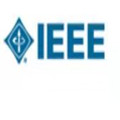The semiconductors industry benefits greatly from the integration of Machine Learning (ML)-based techniques in Technology Computer-Aided Design (TCAD) methods. The performance of ML models however relies heavily on the quality and quantity of training datasets. They can be particularly difficult to obtain in the semiconductor industry due to the complexity and expense of the device fabrication. In this paper, we propose a self-augmentation strategy for improving ML-based device modeling using variational autoencoder-based techniques. These techniques require a small number of experimental data points and does not rely on TCAD tools. To demonstrate the effectiveness of our approach, we apply it to a deep neural network-based prediction task for the Ohmic resistance value in Gallium Nitride devices. A 70% reduction in mean absolute error when predicting experimental results is achieved. The inherent flexibility of our approach allows easy adaptation to various tasks, thus making it highly relevant to many applications of the semiconductor industry.
翻译:半导体产业通过将机器学习(ML)技术与技术计算机辅助设计(TCAD)方法相结合,获益良多。然而,ML模型的性能在很大程度上依赖于训练数据集的质量和数量。由于器件制造的复杂性和成本,这些数据集在半导体行业中往往难以获得。在本文中,我们提出了一种自我增强策略,用于利用基于变分自编码器的技术改善用于建模半导体器件的ML模型。这些技术使用少量的实验数据点,不依赖于TCAD工具。为了证明我们的方法的有效性,我们将其应用于用于预测氮化镓器件的欧姆电阻值的深度神经网络预测任务。该方法在预测实验结果时取得了平均绝对误差降低70%的效果。我们的方法固有的灵活性使其易于适应各种任务,因此非常适用于半导体行业的许多应用。

